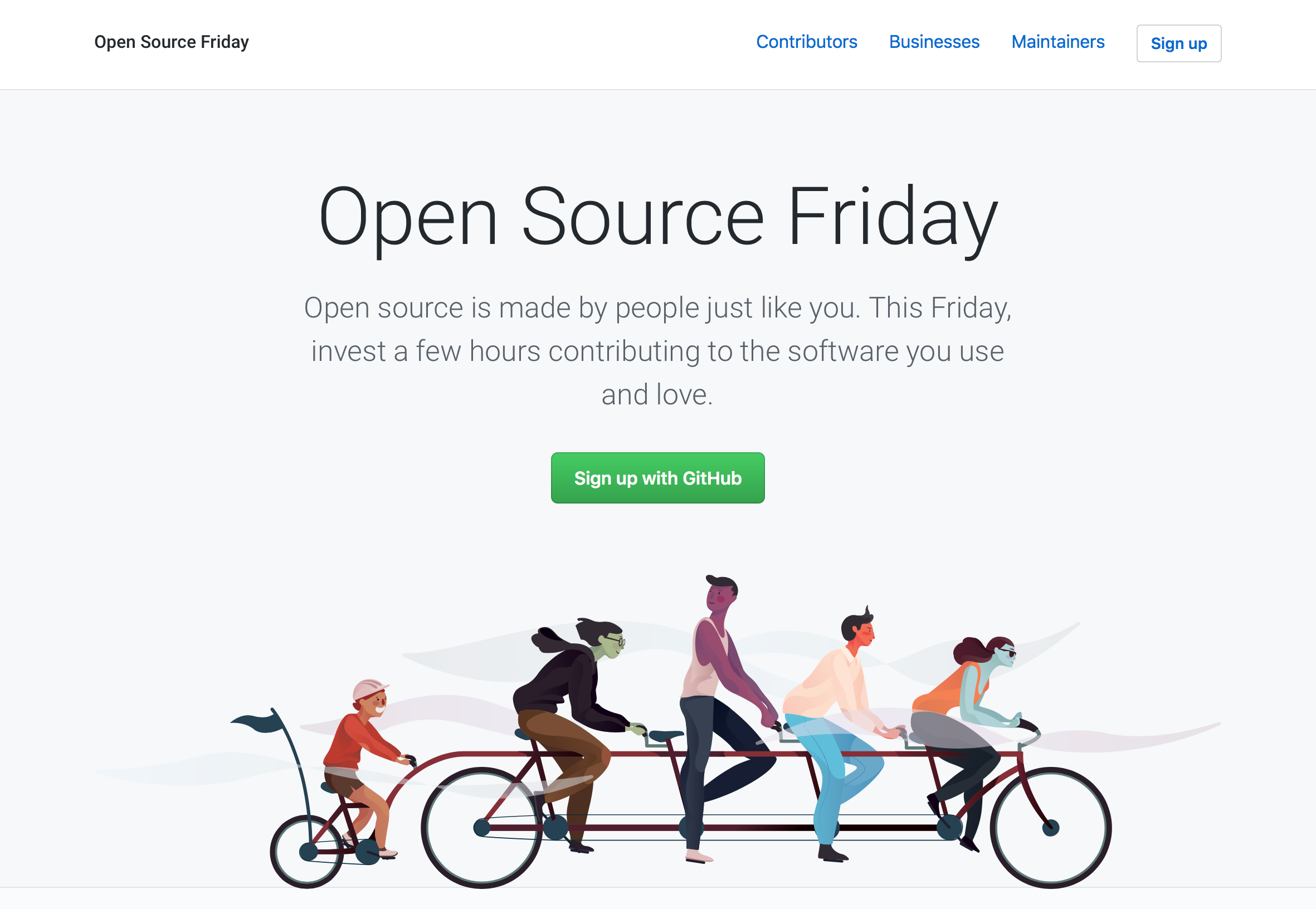
GitHub wants to get more people involved in the open-source community. The company has announced Open Source Friday, a new initiative designed to make it easier for individuals and organizations to contribute to open source. With Open Source Friday, GitHub wants teams, departments and companies to spend a few hours every Friday working on their favorite open-source software.
“Open Source Friday is a structured program for contributing to open source. Contribution to open source is part of our DNA with GitHub employees maintaining projects like gh-ost, Rails, Atom, Homebrew, HospitalRun and Exercism. Over the last three years, we’ve encouraged GitHub employees to take time at least every fourth Friday to work on open source and share what we’re working on with each other. Open Source Friday has grown from this into a program anyone can take part in,” Mike McQuaid, a GitHub staff member, wrote in a post.
The company will track Open Source Friday contributions, and allow users to share their contributions.
TypeScript 2.4 released
Microsoft has officially announced the availability of TypeScript 2.4. The latest release comes with a number of new improvements and features such as dynamic import( ) expressions, string enums, improved checking for generics, return types a interface targets, and stricter checking for generic functions.
“If you haven’t yet heard of TypeScript, it’s a superset of JavaScript that brings static types and powerful tooling to JavaScript. These static types are entirely optional and get erased away – you can gradually introduce them to your existing JavaScript code, and get around to adding them when you really need. At the same time, you can use them aggressively to your advantage to catch painful bugs, focus on more important tests that don’t have to do with types, and get a complete editing experience,” Daniel Rosenwasser, program manager at Microsoft, wrote in a post.
More information is available here.
Datameer unveils new deep learning model solution
Datameer announced SmartAI, a new solution for operationalizing deep learning models directly within enterprise data lake environments securely at scale. It allows enterprises to democratize data science and apply and execute trusted models against massive datasets. Features include rich analytics, ability to create deep learning models using TensorFlow, analyst access to trusted deep learning models, and direct operationalization of TensorFlow models.
“Today, we’re only seeing the tip of the iceberg in terms of what can be accomplished in the world of deep learning and artificial intelligence,” said Peter Voss, CTO of Datameer. “AI is only as good as the data that feeds it. We’re thrilled to connect the dots by allowing enterprises to bring together massive amounts of disparate data, prepare and design the data pipeline, and now ultimately feed the data into models that have the potential to radically optimize business models.”
BMC Digital Workplace
BMC is introducing a new cloud-based service to help organizations work in today’s digital world. The BMC Digital WorkPlace is designed to transform the corporate culture to revolve around employees’ needs with tools and services needed to be successful in a digital era. The solution will allow employees to access tools and services anytime, anywhere and from any device.
“The future of work will be built on transformative digital workplaces that engage and empower employees by placing them at the center of an increasingly-cognitive enterprise,” said Nayaki Nayyar, President, Digital Service Management at BMC. “Companies that fail to prepare for a business landscape where artificial intelligence, machine learning, robotics, and automation redefine how we work will have difficulty attracting and retaining skilled workforces. Our BMC Digital Workplace solution increases the ability to deliver on those criteria by providing key digital workplace capabilities in the cloud or on-premise, all available via a single pane of glass that transforms the way we work.”






